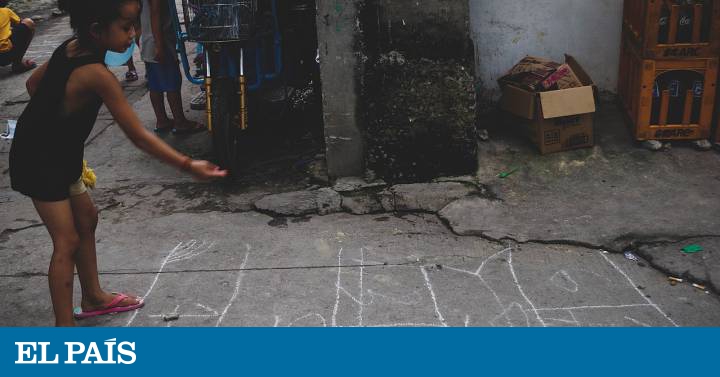MORE INFORMATION
A critical look at the 'Pla Superilla' in Barcelona
How to manage cities after the pandemic
Public space as an experience
Egalitarian patios against 'soccercentrism': this is how school recess should be
For decades, spaces for games, recreation or social relations not mediated by consumption have been reduced, and the demand to build cities for the people has always been an imminent objective.
Today, more than ever, not only have there been initiatives that affect the design and care of public space (such as the city of 15 minutes or the "Pla superilles Barcelona") but there have also proliferated initiatives that address the disparities and diversity of gender, culture, social class, physical condition and age;
and it is that all these factors condition needs and desires when occupying streets, squares and parks.
The public space has proven to be a platform to build citizenship, equality and social inclusion;
a space for interaction, exchange and negotiation.
An example of this are the time restrictions, the occupation of the roads, the use of space on the roads, the economic exchange, the tactical interventions or the conflicts with the authority.
During long months of uncertainty, the confinement of cities revealed the enormous inequalities suffered by families living in crowded areas in densely populated areas or in houses without a garden, terrace or balcony.
All of them urgently need open and accessible spaces, since these factors influence physical and mental health problems, affecting the little ones to a greater degree.
Infants have been one of the groups most affected by confinement, since they have reduced contact with others, their ability to concentrate, they have lost their routines, as well as play spaces (vital for their development).
In this sense, it is important to rethink, quantify and analyze urban spaces and their use, since in addition to the health and economic crises produced by the pandemic, the WHO has warned that a third crisis is yet to come: the psychological one.
Taking into account the difficulties that cities are having to combat the virus, climate change and readjust to urban life, the Basurama collective has proposed to the Madrid City Council the reuse of the trunks of the trees killed by the storm Filomena as structures for the game in nursery schools and colleges.
The main objective is to give a second life to disused, degraded or forgotten materials in order to carry out projects on a human and urban scale focused on the little ones.
As published in the media, the administration removed a total of three thousand tons of trees in poor condition, where one in two tons was converted into organic matter to nourish the green soils of the capital.
However, in this process, large logs are wasted, losing the opportunity to reuse them and extend their useful life.
There is an incredible opportunity for a very easy and straightforward urban-scale project: repurpose tree trunks shot down by Filomena throughout the city for natural play structures in nursery schools and colleges @MADRID #reuse pic.twitter.com/tOggYzhS9e
- Basurama (@basurama) February 4, 2021
In this
blog
we have already talked about the fantastic works of Basurama;
a group that works on endless projects, always proposing new materials, forms, uses and management systems for reuse, through highly curated interventions.
Recently, the group has used social networks to make an appeal to the Madrid City Council to recover the large logs, showing the case of the patio of the CEIP Cristóbal Colón de Villaverde, where a simple and necessary intervention is appreciated, the fruit of a tree sick reused.
If we want to build a better society, we must take care of urban spaces and promote that infants enjoy spaces for play and creativity.
Today, more than ever, it is essential to analyze, listen to and implement (from the administration) proposals such as that of the Basurama collective.
Simple interventions aimed at improving public space and play, creating spaces that are part of recovery and healing: safer, open, collaborative and inclusive.




/cloudfront-eu-central-1.images.arcpublishing.com/prisa/USPGW4YAYJFFPIEU4G5GZEUJ4Q.jpg)










